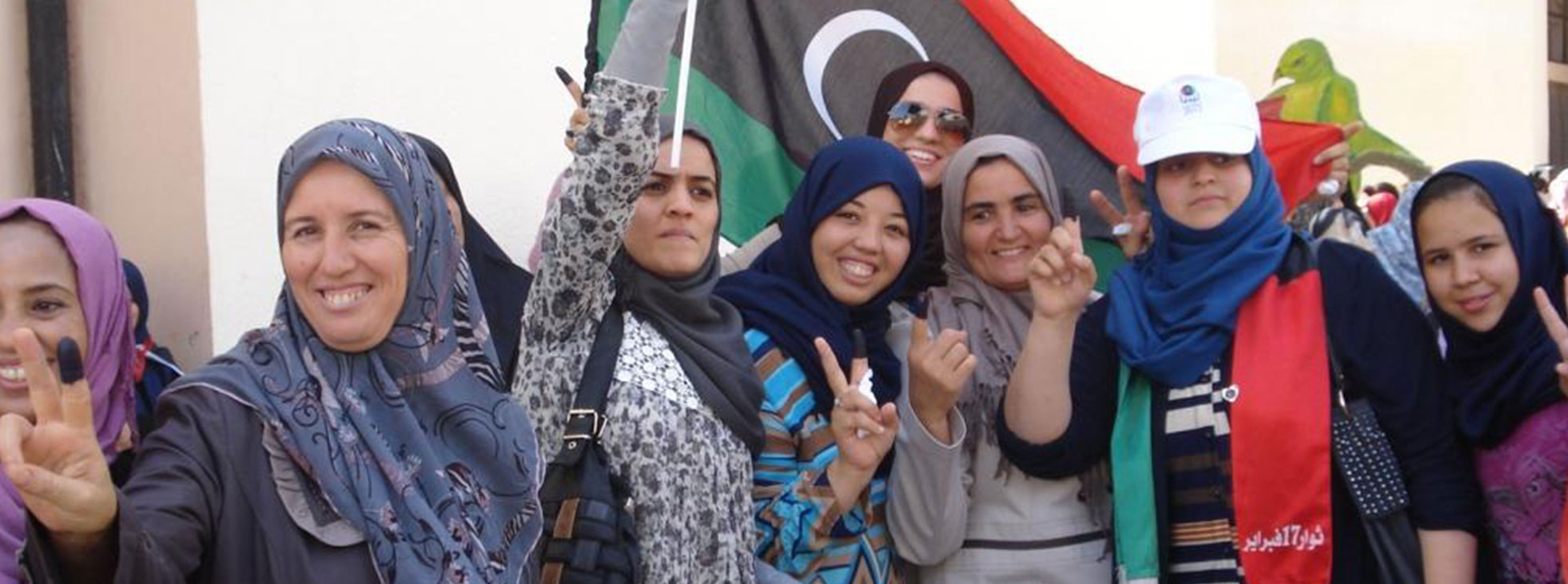Country in Focus: Libya

The position of women in Libya has continued to fluctuate in tandem with the political, economic and social reforms occurring within the Libyan landscape. This position has drastically deteriorated given the permanent state of war in Libya, having been a culmination of decades of oppression since the Gaddafi regime came to power in 1969.
Gaddafi had governed at the helm of Libya with the ideology of a state of the masses, leading to flourishing corruption, repression and violence. Following a six-month uprising movement, which led to Gaddafi’s fall in 2011, hope began to emerge for a better future, but was ultimately halted in its tracks.
The opposition party, the National Transitional Council (NTC), led the movement and declared Libya to be a liberated state destined to be returned to its status as a democratic state. When the first free national elections were held in 2012, the new Prime Minister Ali Zeidan was tasked with drafting a new constitution and organizing parliamentary elections. However, continuous tensions between Nationalist and Islamic factions hindered the development of a stable and democratic government, with ongoing battles between rival militias leading to a further decline in conditions. Even after the 2014 elections, both the Islamic and secular militia groups continued to vie for control of the country. This led to a complete government collapse and acted as the catalyst for a new civil war. Libya is currently in a state of permanent war, which has become the dominant factor in people’s daily lives.